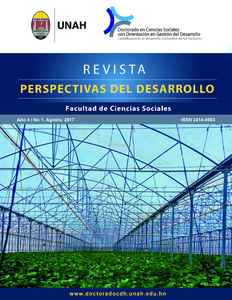Scientific research to manage human development in Honduras
DOI:
https://doi.org/10.5377/rpdd.v4i1.9382Abstract
The argument of this study is that the idea of sustainable human development is not only a myth, but that it could be attained. However, in order to do so, an epistemological and operational change is needed because the historical linear capitalist model has not worked. In this dynamics of development, the losers have always been the underdeveloped countries. A historical-economical brings light and allows for a better understanding of the process that leads these countries to be the countries in disadvantage. The objective of the study is to analyze the relationship between scientific research and sustainable human development from a historical-hermeneutical point of view during the 1980-2015 period and to propose a collaborative Research model for the National Autonomous University of Honduras (UNAH) with the expectation that this analysis will set us in a better position to evaluate the current trends of development and to understand why it has failed in the past and to wonder about what can be expected and how to attain a better life for the millions of poor Hondurans. The fundamental premise of the study is that the research processes conducted by the Higher Education Institutions have a pedagogical and formative value for the professional who graduate from such institutions.
Downloads
707
HTML (Español (España)) 426
EPUB (Español (España)) 195
MP3 (Resumen) (Español (España)) 159




